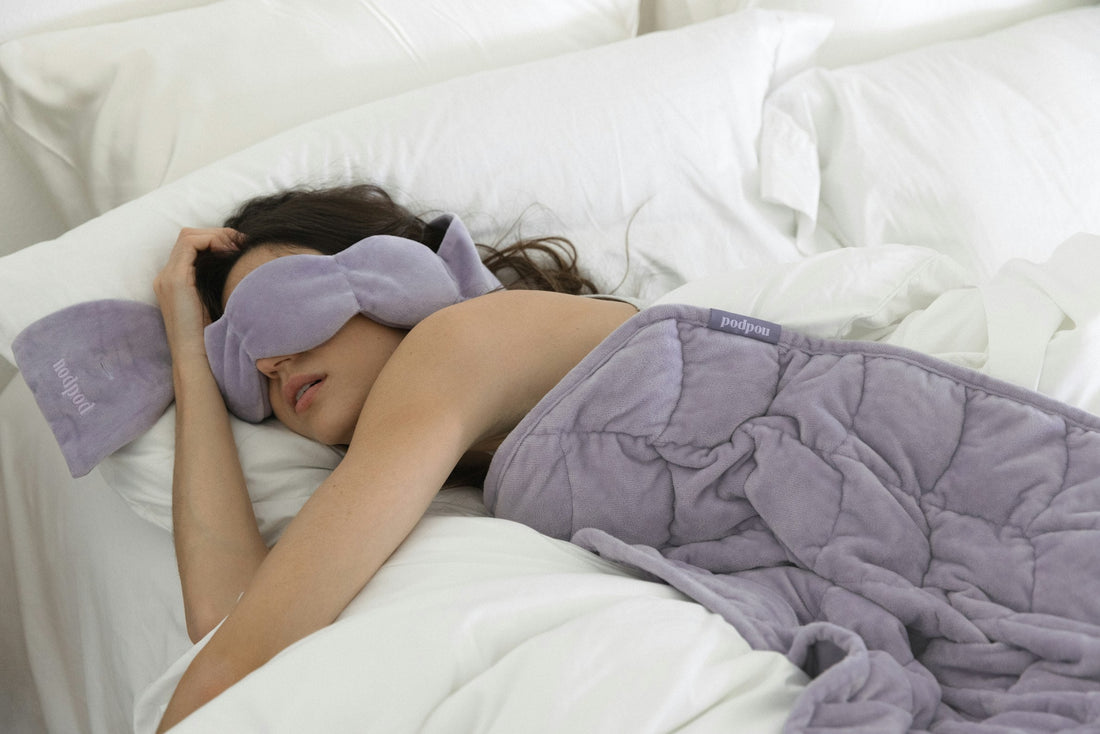
Aaishwariya Gulani on The Science Behind Sleep
Share
Everyone has experienced wanting to go to bed after a long day and being unable to fall asleep despite how tired they are. As a resident, sleep is one of the most fleeting things to come by, yet when I have time to sleep early or sleep in I find myself unable to do so easily. Why? Because our sleep is disturbed by external factors.
Light
When we go to sleep it may be dark, but usually it’s not “pitch black.” Most rooms have some street lighting or even a night light. Studies have shown that going to sleep with light pollution can affect quality of sleep. To understand how minimal light exposure can have such drastic effects, let's break it down into numbers. On a bright summer day, we are exposed to 100,000 lux (lux is a measurement of intensity of light perceived). For comparison, on a dark day we are exposed to 100 lux. It has been shown that even 5-10 lux overnight can affect our sleep and worsen ocular fatigue.
Ocular fatigue is a subjective group of symptoms including dry eyes, increased blinking, and eye redness that is seen with poor sleep and increased straining. With the increase of laptops and phones in our day to day, diminishing ocular fatigue has come to the forefront of our generation. You may have heard of the term “sleep hygiene” as well as avoiding electronic devices before bed and right when you wake up. These all are rooted in trying to minimize ocular fatigue in today’s generation. While we know that avoiding electronic devices before bed will help, we don’t realize we are exposed to ambient lighting overnight that can still affect our quality of sleep.
The increased light during sleep hours also affects our circadian rhythms. Our circadian rhythm is dictated by a part of our hypothalamus called the Suprachiasmatic nuclei. This receives visual input from the retina, and accordingly increases or suppresses production of melatonin in the pineal gland. Night time exposure to light suppresses the production of melatonin. The exposure to light, timing of the exposure, and duration all affect our sleep-wake cycle.
We wonder why when we nap during the day, sometimes we wake up feeling more tired than refreshed. It’s the same reason, there’s too much light and we are offsetting our circadian rhythm.
Pressure
Weighted blankets go a long way back as a way to relieve anxiety and soothe you into sleep faster. The weighted eye mask serves a similar purpose. I know when I try to sleep I often find that even though I am physically exhausted, my mind is racing about the day's events, or for tomorrow's. Pressure over the eyes hits the main pressure points around the eyes to alleviate anxiety. The Zan Zhu point is along the inner eye, near the nose, and we often find ourselves pressing this area when we have a headache or feel fatigued. Light pressure on this area along with the other pressure points in the eye helps relieve tension and eye strain.
Touch
Eyelid skin is the thinnest skin in the body. Cosmetically, sleeping on your side or face can cause wrinkles, something we all would like to avoid or push off rather. Silk pillow covers have gained popularity as ways to reduce the friction causing wrinkles. Similarly, silk eye masks provide the soft, soothing feel around the eyes where skin is most vulnerable to wrinkles.
Overall, the science of sleep is rooted in the senses of sleep, and a lot of that originates in stimulus provided to or around the eye. Thus, optimizing these conditions improves one's quality of sleep.